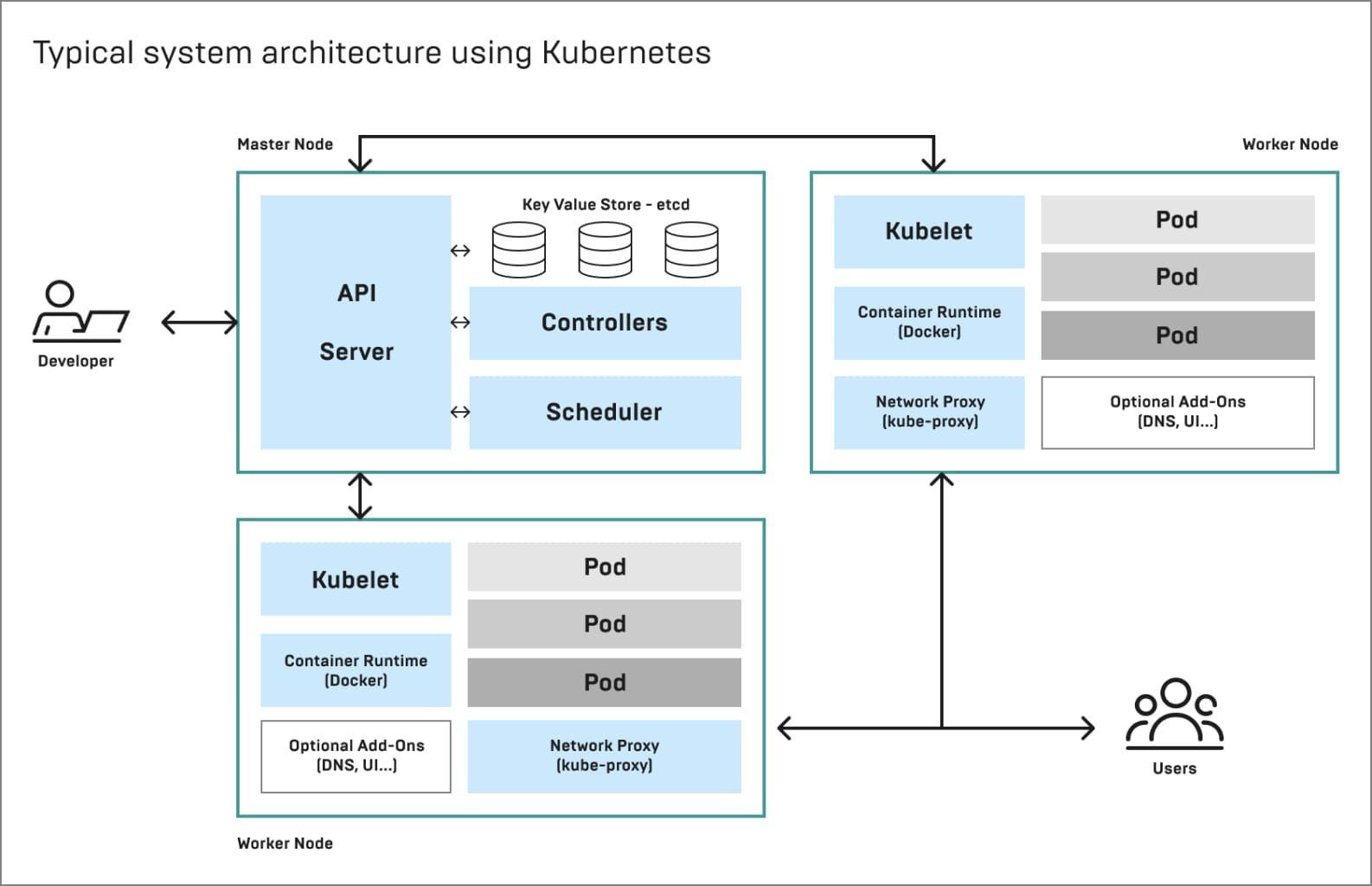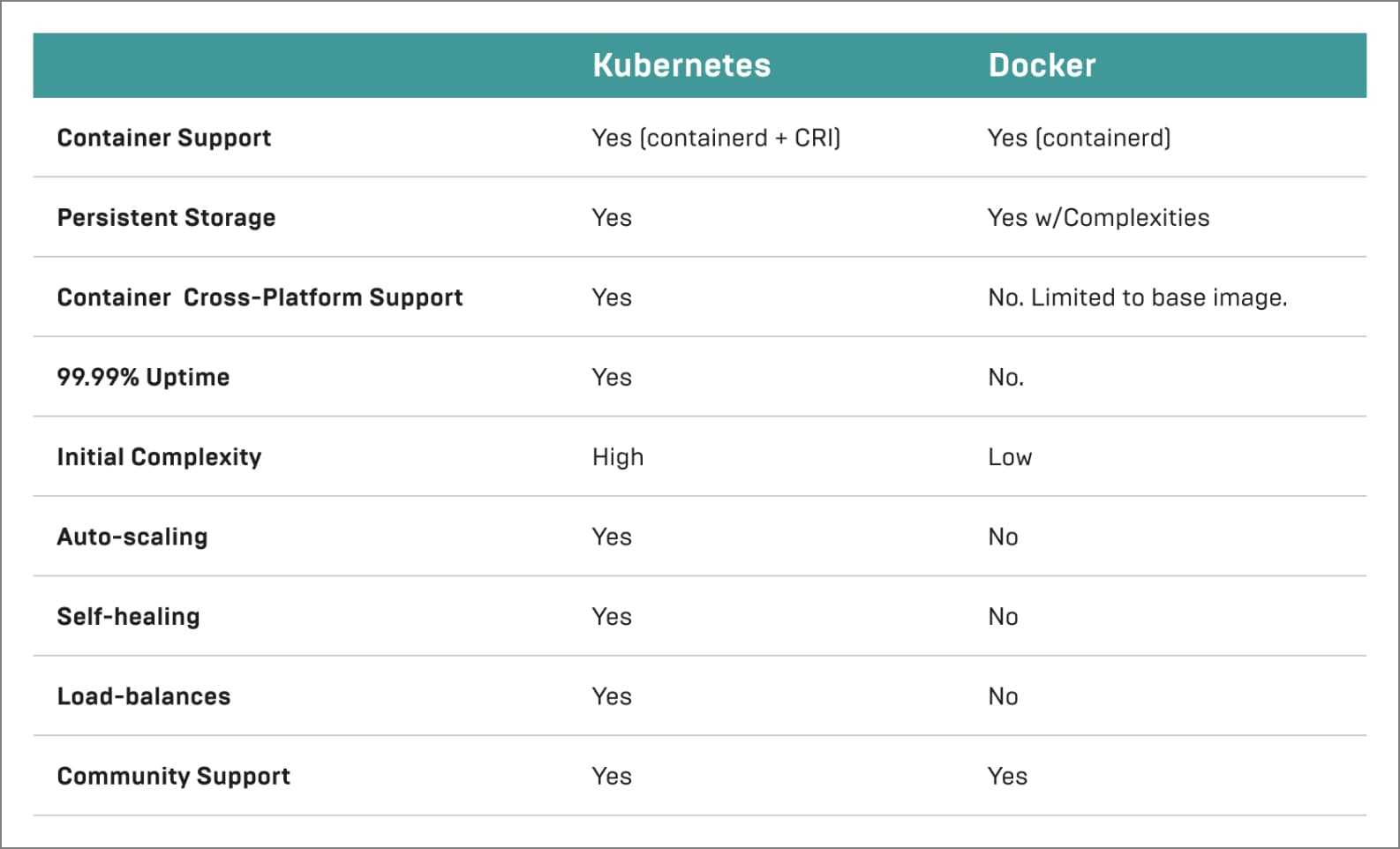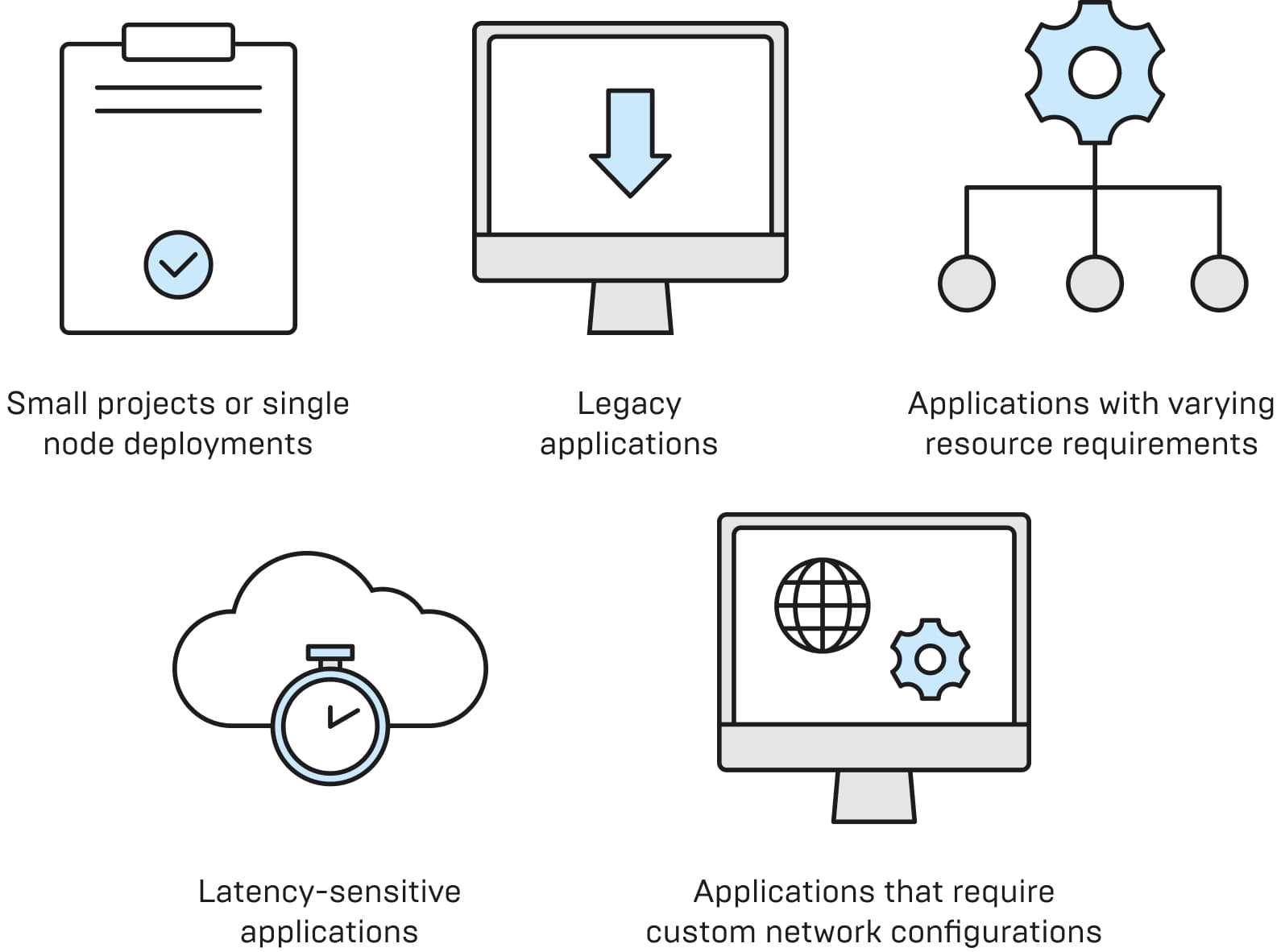What does Kubernetes actually do and why use it?
What is Kubernetes?
Kubernetes, often abbreviated as K8S, is a highly influential open-source platform for container orchestration, management, and scaling. Kubernetes was first developed by Google and has promptly become one of the most widely used orchestration tools in the field of containerization.
So what does Kubernetes do? K8S offers a centralized management solution for containers, allowing administrators to manage thousands of containers and virtual machines as a single, unified entity. This results in advanced process isolation, improved load balancing, and better utilization of resources, ensuring a more efficient and streamlined container management process. The platform provides a consistent and well-defined API, allowing users to manage containers across multiple hosts, whether deployed in the cloud or on-premise.
In addition to its powerful management capabilities, Kubernetes provides a rich set of tools and extensions that can be used to extend its functionality. The platform has an engaged community of developers who are constantly developing new extensions and plugins to enhance the platform’s capabilities. This has resulted in a rich ecosystem of tools and plugins, which can be used to extend Kubernetes and make it more effective and easier to use.
Kubernetes uses a Master/Worker architecture where a master node controls and manages worker nodes that execute the container workloads via an API Server. This enables businesses to manage their IT workloads more efficiently, as they can cluster together groups of hosts running Linux containers. Furthermore, Kubernetes is written in the Go programming language and works on various platforms and cloud deployment models, making it a flexible and versatile solution for organizations of all sizes.
The name Kubernetes originates from Greek and means “helmsman” or “pilot,” reflecting its intention as a tool to help guide and manage containerized applications. Google open-sourced the Kubernetes project in 2014, but it continues to be actively developed and maintained, incorporating the best ideas and practices from the community. The technology behind Kubernetes was influenced by Google’s internal platform Borg, which powered over 2 billion container deployments a week and was the predecessor to Kubernetes.
What is the difference between Kubernetes and Docker?
Kubernetes and Docker are often used interchangeably, but they are actually two different technologies. It is necessary to note that they are different in nature and serve different purposes.
Docker is a technology that allows developers to package their applications into containers. These containers are self-contained units of software that include all the dependencies and configurations required to run the application. Docker containers can be easily deployed and run on any system that supports Docker. They are lightweight, portable, and provide an efficient way to distribute applications.
On the other hand, Kubernetes is a platform for container orchestration. It is designed to manage containers’ deployment, scaling, and operation. It provides a centralized platform for managing and automating the deployment and management of containers. It also provides features such as load balancing, resource utilization management, and process isolation. Kubernetes is agnostic to the underlying container technology, which means it can work with containers built using Docker or other container technologies.
In other words, Docker provides the containers themselves, while Kubernetes provides a way to manage and orchestrate those containers.
Why and when to use Kubernetes
Kubernetes can be used when building, deploying, and scaling containerized applications.
KUBERNETES FOR CONTAINER ORCHESTRATION
- What is a container orchestration system?
A Container Orchestration System is a platform for automating deployment, scaling, and managing containerized applications. It helps manage and coordinate the containers that make up an application and ensures that the containers are running in a highly available and scalable environment. Examples of container orchestration systems are Kubernetes, Docker Swarm, and Apache Mesos.
Kubernetes is designed to automate the deployment, scaling, and management of containerized applications. Containers are isolated, lightweight environments that can run applications consistently on any infrastructure. Kubernetes can manage containers across multiple hosts, providing resilience, automatic failover, and rolling updates.
KUBERNETES FOR MICROSERVICES MANAGEMENT
Kubernetes is often used for microservices-based applications composed of many small, independently deployable services. Kubernetes provides features such as service discovery, load balancing, and rolling updates that make it more comfortable to manage and scale microservices. Kubernetes can also automate the management of storage, networking, and security for microservices, making it easier to build and run large, complex applications.
KUBERNETES FOR CLOUD ENVIRONMENT MANAGEMENT
Kubernetes can run on-premises, in the cloud, or in a hybrid environment. It provides a unified way to handle containers, making moving applications between different environments easier. This can help organizations reduce vendor lock-in and increase the flexibility of their infrastructure. Kubernetes also provides a platform for automating infrastructure management tasks, such as scaling and rolling updates, making it easier to manage cloud resources. Additionally, Kubernetes supports a wide range of cloud providers and can be integrated with cloud-native tools and services, making it a popular choice for managing cloud-based applications.
When not to use Kubernetes
Kubernetes is a compelling tool for managing containerized applications, but it may not be the best choice for every use case. Here are some situations where you might consider not using Kubernetes:
- Small projects or single node deployments: If you have a small project or a single node deployment, the overhead of managing a Kubernetes cluster may not be justified.
- Legacy applications: Kubernetes was designed for cloud-native applications and may not be a good fit for monolithic applications with a different architecture or technology stack.
- Applications with varying resource requirements: Kubernetes was designed to run multiple containers on a single node, but it may not be ideal for applications with resource requirements that are significantly different.
- Latency-sensitive applications: Kubernetes introduces some overhead and latency compared to running containers directly, so it may not be a good choice for applications that require low latency.
- Applications that require custom network configurations: Kubernetes has a specific network architecture and may not support the custom network configurations that some applications may require.

How security is implemented in Kubernetes
Kubernetes provides several security features to help ensure the security of containers and applications, including the following:
- Role-based access control (RBAC): allows administrators to define who can access and perform actions within the cluster.
- Network segmentation: uses network policies to control traffic between pods and isolate sensitive components.
- Secrets management: provides a way to store sensitive information such as passwords and keys securely.
- TLS encryption: uses secure transport layer protocols to encrypt all data in transit between components.
- Pod Security Policies: enables cluster administrators to enforce security policies for pods, such as setting resource requests and limits or defining allowed host paths and ports.
- Authentication and authorization: support for various authentication methods, such as x509 certificates, OpenID Connect tokens, and service accounts.
It’s essential to remember that Kubernetes security is a shared responsibility between the user and the provider. Kubernetes provides a foundation for security, but users must properly configure and use these features to ensure a secure deployment.
Kubernetes benefits and advantages
So why use Kubernetes? K8S has many benefits and advantages that make it an excellent tool for managing containers and applications. Some of the key perks of using Kubernetes include the following:
- Scalability: Kubernetes makes it painless to scale your applications and containers, allowing you to handle increased load and traffic easily.
- Efficient resource utilization: Kubernetes provides automatic resource allocation, ensuring that resources are utilized efficiently and optimally.
- High availability: Kubernetes provides automatic failover and redundancy, ensuring that your applications remain available even in the event of a failure.
- Faster time-to-market: Kubernetes allows you to automate the deployment and management of containers, reducing the time and effort required to bring new applications to market.
- Support for continuous deployment: Kubernetes provides a robust set of tools for continuous deployment, making it easier to manage and deploy updates to your applications.
Kubernetes use cases
Areas of Kubernetes usage are extensive, let’s explore the most common cases, including:
CONTAINER REGISTRY MANAGEMENT
Kubernetes can be used to manage and automate the deployment of Docker images and containers in production.
CLOUD SERVICE MANAGEMENT
Kubernetes can be used to manage containers and applications in cloud environments, including private and public clouds.
DEVOPS TEAMS
Kubernetes provides a considerable amount of tools for DevOps teams, making it easier to manage and deploy containers and applications in production environments.
MONOLITHIC TO MICROSERVICES MIGRATION
Kubernetes provides a wonderful platform for developing, testing, and deploying containerized applications.
TRAFFIC ROUTING
Kubernetes provides a way to route traffic to the appropriate containers, ensuring that applications are accessible and performant.
APP DEVELOPMENT
Kubernetes provides a wonderful platform for developing, testing, and deploying containerized applications.
Final thoughts
In conclusion, Kubernetes has established itself as one of the market’s most practical container orchestration tools today. Its ability to automate the deployment, scaling and management of containers makes it a valuable tool for organizations looking to improve the efficiency and performance of their applications. Whether you’re managing a large-scale production environment or just starting out with container technology, Kubernetes can help you accomplish your goals faster and more productively.
If you’re keen to take advantage of the benefits of Kubernetes, consider reaching out to the Reenbit team for professional services. Our experts can help you get up and running with Kubernetes, optimize your infrastructure, and ensure that your applications are secure and performant.







